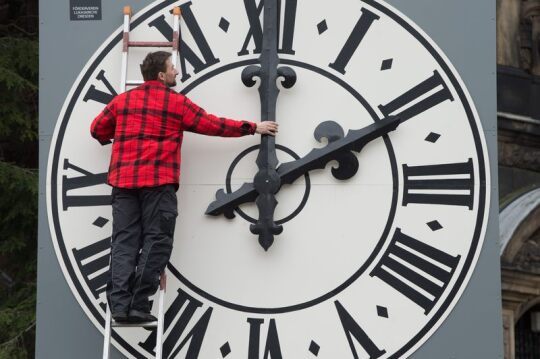Renew: 25/03/2023 00:20
Issued by: 24/03/2023, 00:19
Prague – Daylight saving time starts in the Czech Republic on Sunday, so the evening on Sunday will be shortened to one hour. At 02:00, the clock will move to 03:00. Daylight saving time will then last until October 29. According to some experts, the change in time has a negative impact on people’s health and psyche and no longer fulfills its original purpose, which was to save energy. hourly delays. According to the company’s press release, the railway will try to reduce the resulting delays, for example by shortening the stay of trains at stations. Daytime trains for delayed evening services generally won’t wait so the delay isn’t transferred to them. In daylight saving time, the time given for each time zone is not used, but the time is shifted forward, usually by one hour. At the end of October, Central European standard time returns, which is mistakenly called winter time. Daylight saving time was first used on Czech soil in 1915 and 1916. It was reinstated during the Second World War, and a permanent switch to daylight saving time was introduced in Czechoslovakia in 1979. Daylight saving time’s original purpose was to conserve electricity, which was supposed to be needed for night lighting, according to energy experts, does not result in much energy savings. On the contrary, according to some experts, the change in time has a negative effect on human health and psyche. In 2019, the European Parliament backed plans to abolish the mandatory time change by 2021. However, the condition is coordination of procedures within the EU, and no agreement has been found among EU countries.
Due to the time shift, eight Czech trains in the Czech Republic and two nights of trains abroad on the Prague-Zurich route will automatically be delayed by one hour. According to the company’s press release, the railway will try to reduce the resulting delays, for example by shortening the stay of trains at stations. Daytime trains for delayed evening services generally won’t wait so the delay isn’t transferred to them.
In daylight saving time, the time given for each time zone is not used, but the time is shifted forward, usually by one hour. At the end of October, Central European standard time returns, which is mistakenly called winter time.
Daylight saving time was first used on Czech soil in 1915 and 1916. It was reinstated during the Second World War, and a permanent switch to daylight saving time was introduced in Czechoslovakia in 1979. Daylight saving time’s original purpose was to conserve electricity, which was supposed to be needed for night lighting, according to energy experts, does not result in much energy savings. On the contrary, according to some experts, the change in time has a negative effect on human health and psyche. In 2019, the European Parliament backed plans to abolish the mandatory time change by 2021. However, the condition is coordination of procedures within the EU, and no agreement has been found among EU countries.

“Certified bacon geek. Evil social media fanatic. Music practitioner. Communicator.”







